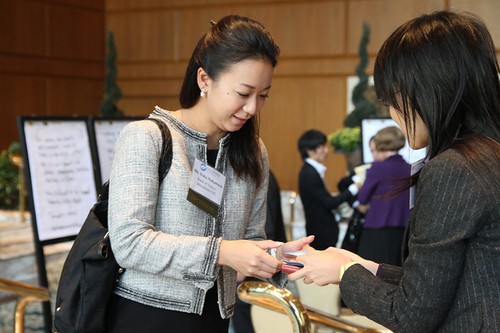As booklife states, international book fairs such as the Frankfurt Book Fair, the London Book Fair, the Beijing International Book Fair, and the Bologna Children’s Book Fair are some of the largest industry events in the world, which means they’re excellent opportunities to branch into new markets or sell your publisher’s rights. They’re also excellent opportunities to get hopelessly lost, confused, and overwhelmed by the sheer volume of people and amount there is to do. If you want to make the plane ticket and entrance fee worth your while, it’s important to prepare before you land.
- Set a few easy goals, one or two moderate goals, and one pie in the sky.
The easy goals can function as part of your daily to-do list. These goals can be “talk to two agencies” or “attend a panel and speak to the host.” Some moderate goals can be “pitch a catalog to three publishers” or “make a connection at a new distributor.” Your pie in the sky will be specific to the fair and your own professional aspirations, but it might be to acquire the rights to a famous author’s new book or strike a deal with a new press.
- Decide which panels and events to attend.
As with any conference, cool events are scheduled concurrently. Really pore over the schedule beforehand to determine which events will be most worth your time and which ones you’ll regret not attending. Don’t forget to schedule time to eat and rest!
- Block out time to mingle.
For rights agents, one of the most lucrative areas in any international book fair are the tables in the rights hall. There, agents, publishers, authors, and distributors meet, pitch, and exchange contact information with each other. Rights licensing is still a very face-to-face kind of job despite the advent of Zoom, and the face time with these industry professionals is invaluable to all agents.
- Take breaks to take notes.
Meeting so many people back-to-back can easily become overwhelming. It’s near impossible to remember what was promised to who, which publisher is interested in which catalog you showed, and whose business cards you grabbed because they were interested in what you had or because you’re interested in what they had. Taking notes while talking to people can sometimes be considered rude, so be sure to stay engaged in the conversation, then step aside to write yourself a quick note. Later on when you have more time, write more detailed notes on what exactly was said and promised.
- Bring an organizational tool.
You’ll be handed a lot of papers. Flyers, catalogs, business cards, notes, marketing collateral, and maybe a tipsheet here and there. They’ll all be different sizes and supremely difficult to maintain. I recommend a folder or binder for the larger papers, a notebook for your personal notes, and endless paper clips to pin the paraphernalia to the relevant note. Figure out what works best for you so it doesn’t require much thought to put away all the little bits of essential papers you’ll acquire.
- Research foreign customs.
When visiting another country, it’s always a good idea to brush up on polite phrases and basic manners. It’s important to keep in mind, however, that international book fairs will have people from all around the world. Researching Italian customs for Bologna won’t be enough; it’s critical to also look into business practices with anyone you plan to meet. Mistakes can be made and forgiven, but deals will always go smoother with less bumps in the road. It’s best to be prepared.
All in all, book fairs are fun, lively events that can really jumpstart your career or that of an author you represent. They can be overwhelming, but with these quick tips, you can make the most of your time and money. Have fun and good luck!
Image credit:
“Yuka Nakamura Exchanges Business Cards” by U.S.-Japan Council is licensed under CC BY-NC-SA 2.0

